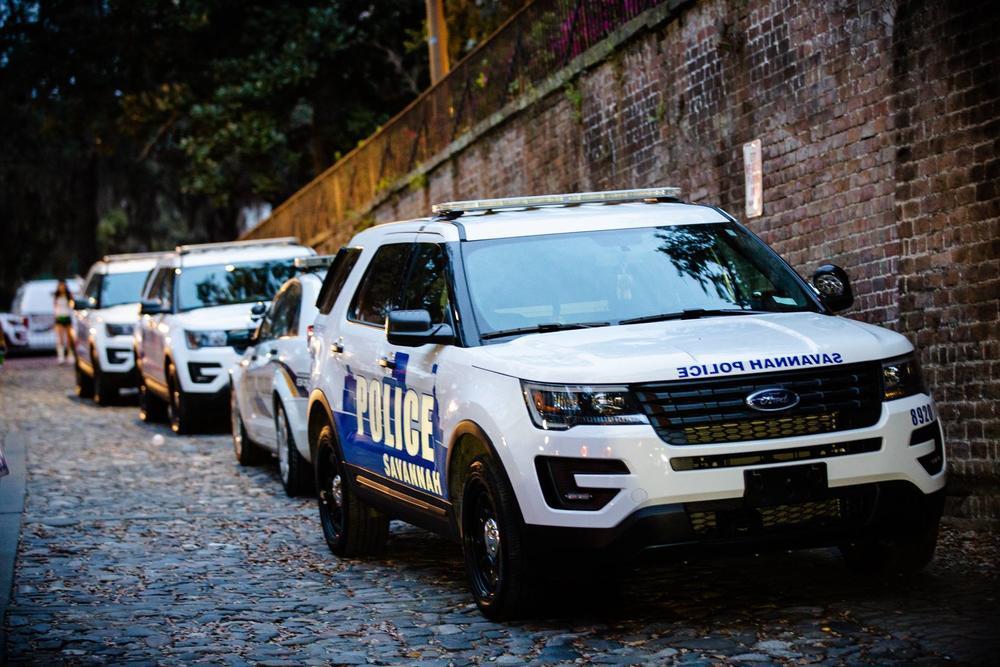
Section Branding
Header Content
Savannah Pride Center, police partner on LGBTQ training to 'turn the corner' on hate crime reporting
Primary Content
LISTEN: The LGBTQ nonprofit will train Savannah police on community engagement and hate crime response, after the department's controversial handling of a fatal March shooting. GPB's Benjamin Payne reports.

The Savannah Pride Center is partnering with the city's police department to conduct officer training on how to better identify and respond to hate crimes against LGBTQ people, following community calls for improved police response to such incidents.
The collaboration comes after the controversial police handling of the March 15 shooting death of Chris Allen Vilegas Fentress, a 27-year-old Savannah Pride Center volunteer who was allegedly murdered at a Dollar General store on West Bay Street by an assailant who reportedly shouted anti-gay slurs.
Johnathan Manson, 27, was arrested the following day and charged with murder. He has not entered a plea, according to court records, and has not been charged with a hate crime.
The Savannah Police Department declined to report Fentress' killing as a hate crime, despite what Savannah Pride Center executive director Michael Bell described as clear indicators.
"When the shooter has a history of anti-gay messages that they've posted on their social media, when the victim is visibly, identifiably part of our community and anti-gay slurs were thrown, absolutely, it's time for an investigation," Bell told GPB in March.
Bell confirmed Monday that the new training program stemmed directly from Fentress' death and subsequent meetings with police leadership "to have a discussion about what we can do and what our asks were to better serve our community."
Under the partnership, Savannah Pride Center staff will conduct "Safe Space Training" for new police recruits and provide ongoing education for current officers.
The curriculum will cover LGBTQ terminology, culture, history, and the diversity of Savannah's queer community, extending beyond basic sensitivity training to also include practical policing concerns.
"It's also understanding and having communication over trends in crimes involving the LGBTQ+ community — educating around bias incidents and what that looks like — because we want to be able to turn the corner on reporting hate crimes in Savannah," he explained.
The program coincides with the expansion and reimagining of the Savannah Police Department's LGBTQ liaison program, Bell said, with the new approach distributing liaison responsibilities across precincts and divisions, rather than relying on a single designated officer.
"There's so much to a program like this," Bell said, characterizing the initiative as "turning the corner on just someone having this position in name [to] actually having tools in this program to make the biggest step towards safety for our LGBTQ plus community that's really ever been taken in the city."
This comprehensive strategy, he said, will incorporate community engagement, training management, operational support, and victim services specifically tailored to bias-related crimes.
Savannah Police Chief Lenny Gunther affirmed the department's commitment to the new partnership, saying in a statement that SPD "is dedicated to serving all who live, work, and visit Savannah," and that this includes "working closely with the LGBTQ+ community to ensure their rights, dignity, and safety are not infringed upon."
Bell acknowledged that some community members may remain skeptical of law enforcement, particularly after the department's handling of the Fentress case, but he defended the organization's decision to engage with police as a pragmatic step toward ensuring the safety of LGBTQ Savannahians.
"We have a responsibility to protect our community and to best serve them," Bell said, explaining that accurate reporting of hate crimes is essential for developing appropriate programming and securing grants for community services.
Georgia's hate crime statute is relatively new, having been enacted in 2020 in response to the racially motivated murder of Ahmaud Arbery, whose killers were convicted on state murder charges and federal hate crime charges.

